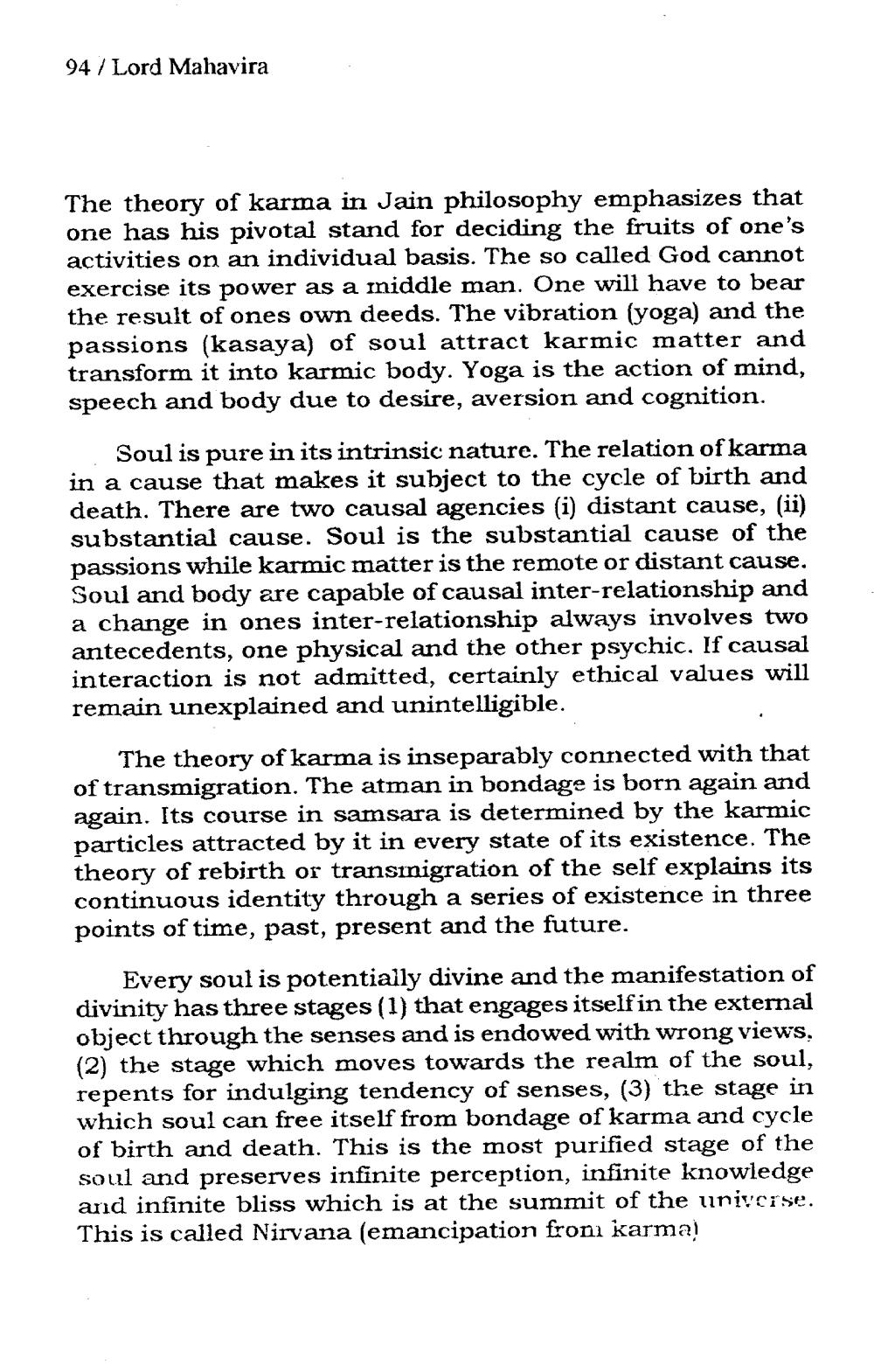________________
94 / Lord Mahavira
The theory of karma in Jain philosophy emphasizes that one has his pivotal stand for deciding the fruits of one's activities on an individual basis. The so called God cannot exercise its power as a middle man. One will have to bear the result of ones own deeds. The vibration (yoga) and the passions (kasaya) of soul attract karmic matter and transform it into karmic body. Yoga is the action of mind, speech and body due to desire, aversion and cognition.
Soul is pure in its intrinsic nature. The relation of karma in a cause that makes it subject to the cycle of birth and death. There are two causal agencies (i) distant cause, (ii) substantial cause. Soul is the substantial cause of the passions while karmic matter is the remote or distant cause. Soul and body are capable of causal inter-relationship and a change in ones inter-relationship always involves two antecedents, one physical and the other psychic. If causal interaction is not admitted, certainly ethical values will remain unexplained and unintelligible.
The theory of karma is inseparably connected with that of transmigration. The atman in bondage is born again and again. Its course in samsara is determined by the karmic particles attracted by it in every state of its existence. The theory of rebirth or transınigration of the self explains its continuous identity through a series of existence in three points of time, past, present and the future.
Every soul is potentially divine and the manifestation of divinity has three stages (1) that engages itself in the external object through the senses and is endowed with wrong views, (2) the stage which moves towards the realm of the soul, repents for indulging tendency of senses, (3) the stage in which soul can free itself from bondage of karma and cycle of birth and death. This is the most purified stage of the soul and preserves infinite perception, infinite knowledge and infinite bliss which is at the summit of the universe. This is called Nirvana (emancipation fronı karmal




